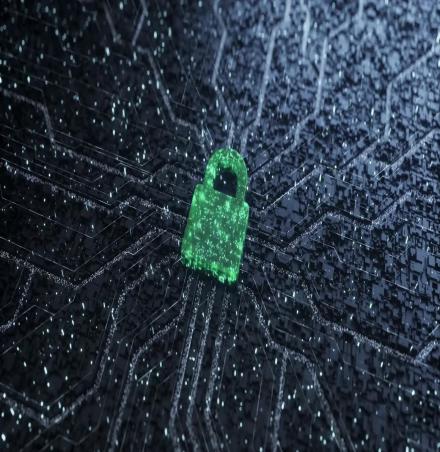Identity verification is a crucial function that ensures financial services are both accessible and safe. It would be challenging to think of using more archaic methods that ensure a centralized database contains all this personal information. Now, decentralized ID verification offers a new paradigm with greater security and privacy for individuals and financial institutions. Decentralized ID verification is a technology that focuses on giving people more control over who has their identity information and for what purposes. This article closely guides what this technology is, how it works and mainly what benefits it brings to the world of fintech.
What is Decentralized ID Verification?
Another method to enable identity verification independent of a central authority involves decentralized ID or DID, verified via blockchain and other decentralized technologies, enabling secure verification of identity without storing sensitive data in a central database. All information is spread across a multitude of nodes on a blockchain network, and only the individual concerned can control access to that data.
Using DID, individuals can provide proofs of identity and other credentials without disclosing their respective private lives. This makes them a significant item in the scope of data breaches and cyber threats.

How Decentralized ID Verification Works?
Decentralized ID verification is based on public key cryptography and blockchain. Here's a simple break down on how the process typically works:
- User Verification Setup: A user sets up a decentralized identifier on some blockchain network. The identifier is unique to the user and does not store personal data; rather, it serves as a pointer to verifiable credentials issued by trusted authorities, such as government agencies or banks. The user's information is then encrypted and stored on a decentralized network, rather than a single database. Users receive a private key that allows them to access and even manage their own credentials.
- Verification Process: A user could provide only the required identification details (for example, opening a bank account) to the service provider by using his private key. Thus, the blockchain can validate very quickly without revealing user's complete digital identity.
- Data Control: The user is fully in control of the credentials, and he can take away the access at any moment. Unlike the regular systems, in which companies store the information of the users perpetually, DID ensures the protection of user data.
Advantages of Decentralized ID Verification in the Financial Sector
- Better Security as well as Lesser Chances of Data Breaches: Once compromised, traditional identity verification systems reveal sensitive data stored in centralized databases. Decentralized ID verification in which data is split across a network of computers makes it much harder for hackers to access. Data breaches cost companies an average of $4.35 million per breach in 2022 alone, emphasizing the need for something better. DID means the users will store their identity information in their own digital wallets. In effect, this takes the workload of securing and managing sensitive customer data off the shoulders of fintech companies and reduces the risk and cost entailed in such a breach.
- User Privacy and Control Over Personal Data: With decentralized ID verification, the data remains fully in control of its owners. They decide who, and when, will gain access to that information. Therefore, risks to their privacy are considerably reduced. Traditional systems are often the mercy of users-for excesses of their personal information shared, they become vulnerable to misuse. In contrast, DID offers "selective disclosure," where only requisite portions of information are disclosed, such as the age, without more. For instance, a bank may accept evidence that one is above 18 years but would not ask for the specific date of birth.
- Increased Trust and Transparency: Through blockchain, decentralized ID verification becomes transparent. Every modification on a user's digital identity is put on the blockchain, hence easier to trace and verify. Immutability in blockchain can also instill trust among users in the sense that information about them cannot be altered without asking first.
- Cost Savings for Financial Institutions: DID can reduce operations pertaining to identification verification and retain more costs otherwise associated with the process. The verification process would involve much work like manual data entry or going through third-party verifications in most cases, costing a financial institution hundreds of thousands of dollars annually. In one recent survey conducted in 2023, it was found that over 60% of deployed blockchains in the financial sector have been associated with lower verification costs. The implementation of a decentralized model entails lower operational and risk costs related to centralized data storage for the institutions.

Challenges in the Adoption of Decentralized ID Verification
- Inadequate Infrastructure and Scalability Issues: Though DID verification has many benefits, but the technology is still in its infancy. The companies lack necessary infrastructure to enable it, and having a blockchain technology scaled up to carry millions is technically challenging.
- Regulatory and Compliance Issues: There will be a complexity in ensuring that the decentralized ID verification by fintech companies complies with standards such as GDPR (General Data Protection Regulation) in Europe and CCPA in California due to country regulations being different. Tech developers and regulatory bodies will need to collaborate to adapt decentralized verification to regulatory requirements.
- Users' Adoption and Education: DIDs could only be that widely adopted if users know how to manage their digital identities in a secure manner. There will be aspects of dealing with private keys, knowledge of blockchain, and dealing with the decentralized nature of DID. All these would be nicely distilled for wider adoption in user experiences.
Future Decentralized ID Verification in Finance
With the growing developments in fintech, it is possible that decentralized ID verification would henceforth find its place in the coherent and user-friendly making of financial services. Hyperledger Indy, Microsoft's ION, and Sovrin are already touted as the new frontiers in developing DID and its application in digital wallets and secure financial transactions.
So, financial analysts project that in 2027, more than 10% of the global financial services industry would be using decentralized ID verification, which is a huge step for digital security. Besides this, the blockchain-based identity will reduce the number of data breaches; moreover, it will make users trust the system much more, thus developing even stronger relationships between the financial services company and customers.
Practical Steps towards Decentralized ID Verification
If you will consider adopting or investing in decentralized ID verification, follow these steps as a starting point:
- Select the Best Blockchain Provider: One should first explore blockchain providers that specialize in identity solutions, such as Sovrin Foundation and Hyperledger Indy. Ensure they offer strong security and transparency in data management practices.
- Understand the Regulations: It is very important to ensure that you are compliant, especially in multiple regions. Familiarize yourself with these local regulations relating to digital identities so that your implementation fits into the privacy standards.
- Educate Users and Staff: Provide educational material on how decentralized ID works and how secure this is. An informed user base will help increase confidence and ease of adoption.
An implementation may be done gradually, beginning with small applications like identity management of employees or even a limited release into customer-facing processes. Testing under controlled environments can then point out and iron out the problems before an all-out release.

Implications of Decentralized ID Verification
Decentralized ID verification represents a revolutionary step ahead in fintech security. It is poised to revolutionize the management of identity and personal data. The system offers strong solutions to today's problems in security and privacy through control hand-overs to users, increased reductions of dependence on central databases, and enhanced transparency. Adoption of DID by fintech companies will benefit not only safety but also help usher trust so that their customers may be confident about a safer, more private financial future. With an overall shift in being more inclusive in the financial world, embracing decentralized ID verification will become a strategic proposition that can help institutions and customers alike in the long term.




